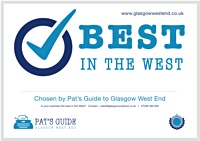Festival and Freedom Walk
 A Celebration of Glasgow's African and Caribbean Heritage
A Celebration of Glasgow's African and Caribbean Heritage
Saturday October 20th
George Square, Glasgow, Scotland
10am - 6pm
Charity - Sickle Cell
The African and Caribbean Network (the Network) is the umbrella and co-ordinating body for the African and Caribbean communities in Glasgow. The Network consists of 23 African and Caribbean organisations and community groups. We promote the inclusion of African and Caribbean people in Glasgow as equal and valued members of the community; we want to end discrimination by telling people about our contribution to the city, by finding ways we can work together, and by increasing our role in all areas of the city's life.
The World Development Movement says there are 16,000 Africans from most of Africa's 53 countries now living in Scotland; according to the figures of the Scottish Executive, Glasgow City Council, and Glasgow Asylum Support Project 10,500 live in Glasgow. '
The year 2007 is an important landmark - we celebrate the 200th anniversary of the British Parliamentary Act abolishing the slave trade. We want to mark this historical anniversary by spreading the message of justice, freedom, and equality in a world where racism is widespread, and exploitation still rife by holding a 'Freedom Walk' Festival.
The Afro Caribbean & African communities are inviting the rest of the city - colleges, schools, community groups, and places of worship to take part in a day of drumming, plays from black britain disapora and the re-enactment of the Act (Abolition of the slave trade) costume making, cuisine, tribal dancing, face painting, and live music and comedy from uk's influential black musicians and poets. (Linton Kwesi Johnson, Lenny Henry, Benjamin Zepahaniah) We will bring a carnival atmosphere to the streets of Glasgow.
Whilst celebrating the victory of abolition with the Festival, we will commemorate the victims of the slave trade with our 'Freedom Walk'. Processing through the areas of the city most closely linked to this hideous trade - from Merchant City to Jamaica Street - we will highlight the half-hidden history of Africans' contribution to Glasgow's wealth. For nearly 200 years, these scars have been covered by fancy shops and a fairytale history of a city made wealthy by plucky merchants and hardy shipbuilders. Glassford Street near Buchanan Street was named after John Glassford, a hugely successful tobacco merchant; the derivation of Jamaica and Virginia Streets is obvious. The Glasgow Museum of Modern Art - one of the city's most prominent structures - is now housed in what was once a tobacco merchant's private residence. The barons that built Glasgow into what it is today. African and Caribbean Network, Festival and Freedom Walk, 2007
Black Camerons, everyone knows Trevor Macdonald, and our Chairperson is Graham Campbell.
Yet Glasgow also had one of the strongest abolition movements. It has proven easier to remember this than what the abolitionists were fighting to abolish. The owning of personal slaves was banned in Scotland in 1778, 29 years before abolition of the trade and 55 years before slave-owning became illegal in the colonies. The first Black doctor in Britain was trained in Glasgow in 1837, and the great American abolitionist Frederick Douglass chose his name because he was inspired by the ideals of the Scottish Enlightenment. Even so, some of the most prominent Glaswegians directly opposed the abolition movement. James McDowall, a Caribbean sugar merchant and partner in Glasgow's greatest merchant house, Alexander Houston & Co, who was chairman of the Glasgow West Indian Merchants and Planters, aggressively lobbied against abolition laws. In 1795, McDowall was made Glasgow's Provost.
The Festival and Freedom Walk will have a number of important impacts.
It will enable:
- 10,000 people to take part in an African & Caribbean event for the first time
- 10,000 people to have first hand experience of the diversity of African & Caribbean cultures by seeing familiar landmarks in a new light
- 10,000 people will have a greater understanding of our shared past
- People in Glasgow and across Scotland to have deeper knowledge of the African contribution to our city leading to a wider understanding of our potential and aspirations, and to greater opportunities for inclusion
The Freedom Walk Festival will become an annual African & Caribbean event celebrating Scotland's diversity.
This will reduce hostility and racism towards African and Caribbean people, increase understanding between communities, and enable Scottish African and Scottish Caribbean people to have a greater sense of pride and belonging in our dual identity.
Our histories are intertwined, we have a common present, the future will be better if we build it together. Join hands with us in our Festival and Freedom Walk: let's make our city one that we can all feel truly proud to belong
African and Caribbean Network Ltd,
2nd Up Right, 34 Albion Street, Glasgow. G1 1LH
Telephone: 0709 288 3657
www.paperclip.org.uk/ACNhtm
[email protected]







